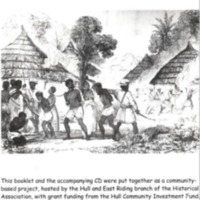
Songs of Slavery
The Songs of Slavery CD and booklet were produced by a community-based project, led by the Hull and East Riding branch of the Historical Association. The project was part of the Wilberforce 2007 initiative in Hull. Songs of Slavery recorded 19 songs relating to slavery, alongside six short narratives. Most of the songs date from the mid-19th century and were originally composed and sung by enslaved peoples. Some were based on religious beliefs, others also contained coded messages to aid escape and resistance. The Songs of Slavery tracks were sung or narrated by local choirs, singers and musicians, together with students from local schools and colleges.
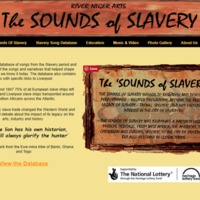
The Sounds of Slavery
The Sounds of Slavery was a project by the performance and visual arts group River Niger Arts to research, record and develop a performance-related programme around the musical heritage and legacy of slavery. The project took particular interest in these themes in relation to the City of Liverpool, but also addressed them in global terms. The project created a database of songs and narratives from the period of slavery. Members of the River Niger Orchestra also performed at a Sounds of Slavery performance at Liverpool Hope University. Some of the songs performed included 'The Chase', 'No More Auction Block' and the African American spiritual 'The Jubilee Song'. The project was accompanied by a series of performance and visual arts education workshops with schools.
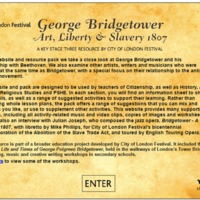
George Bridgetower: Art, Liberty and Slavery 1807
In this website and Key Stage 3 Resource Pack, the City of London Festival examined the work of the Afro-European violinist George Bridgetower (1778-1860) and, in particular, his relationship with the composer Ludwig van Beethoven. The resource also explored the role of other artists, writers and musicians who were active at the same time as Bridgetower, with a special focus on their relationships to the anti-slavery movement. The website provided music, video clips and worksheets, alongside an interview with Julian Joseph, composer of the jazz opera Bridgetower - A Fable of 1807, toured by English Touring Opera. The resource was part of a broader education project developed by City of London Festival, which included the exhibition, 1807: The Life and Times of George Polgreen Bridgetower, held in the walkways of London's Tower Bridge. The education project also included storytelling, music and creative writing workshops in secondary schools.
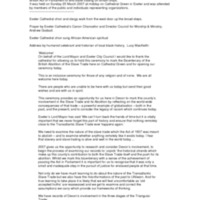
Events to mark the bicentenary in Exeter
On Sunday 25 March 2007, a ceremony was held on Cathedral Green in Exeter to mark the bicentenary. Organised by Exeter City Council, the ceremony was attended by members of the public and individuals representing local organisations. Historian Lucy MacKeith examined the links between Devon, the transatlantic slave trade and its abolition. Extracts were read from the Narrative of Olaudah Equiano, and names read aloud of some of the Africans who came to Devon because of the county's connection to the slave trade.
The play 'Albert and the Story of Equiano' was performed at the Royal Albert Memorial Museum in October 2007. It told the story of Olaudah Equiano, a leading African figure in the British abolition movement in the 18th century.
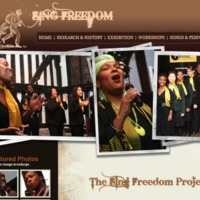
Sing Freedom
The Sing Freedom project was based on the Spirituals sung by African peoples as a response to being enslaved. The generally Christian songs often contained instructions about escape and resistance. The project was a collaboration between Kainé Management Group, Leicester African Caribbean Arts Forum, Leicester City Council Arts & Museum Service and Library Service. It included research into the songs, a touring exhibition, and performances. A series of song writing workshops for young people in partnership with BBC Radio Leicester aimed to give each participant an understanding of the effects of slavery and perceptions they have on present day freedom. At Leicester Guildhall Kainé Gospel Choir and friends came together for an evening celebrating the Spirituals, where songs such as The Gospel Train, Wade in the Water and Swing Low Sweet Chariot were sung.
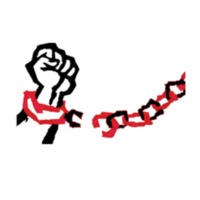
Slave Trade Abolition in Cambridgeshire & Suffolk (STACS)
The Slave Trade Abolition in Cambridgeshire & Suffolk (STACS) project was managed by St John's College at Cambridge University (the former college of the abolitionists Thomas Clarkson and William Wilberforce). Working with local schools, the project aimed to raise awareness of the often overlooked roles played by Thomas Clarkson and Olaudah Equiano within the slave trade abolition movement in East Anglia. Drama workshops led by two historical enactors led to student performances of their plays about the abolition movement. Two public presentations run by students, one in Cambridge and another at the Ipswich Caribbean Association, discussed and debated why the counties of Cambridgeshire and Suffolk should remember the life and work of Equiano and Clarkson. The final outcome of the project was the publication of new teaching resources and curriculum material to introduce students to the work of Equiano and Clarkson, and to place the transatlantic slave trade in local, national and international historical contexts. During the course of the project, BBC Radio 4 broadcast a Sunday worship service from St John's College, in association with 'Set All Free'.
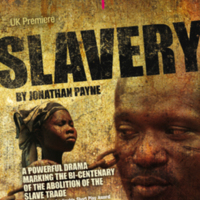
Slavery
A one-act play by Jonathan Payne, 'Slavery' re-tells the personal stories of enslaved Black Americans, using original recordings of interviews conducted by the United States Government's Federal Writers Project in the 1930s. The play brings together a collection of personal testimonials and spirituals (Christian songs created by African slaves in the United States), to explore the consequences of slavery. Presented in 2007 by the cross-cultural London theatre company Tara Arts and directed by Laura Kriefman, the play toured nationally during Black History Month. An Education Resource Pack was produced and drama workshops for schools were held after the performances to explore the issues raised.
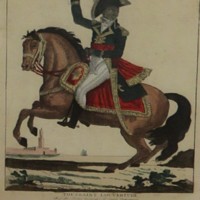
Freedom Think Tank
Freedom Think Tank was a time limited Black-led voluntary group established to influence the agendas of organisations in the North East commemorating the bicentenary of the abolition of the slave trade. The group also organised commemorative events, focusing on themes of promoting social solidarity and raising awareness of the participation of Black people in abolition.
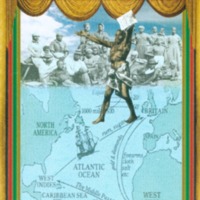
Leeds Bicentenary Transformation Project
This collaborative community initiative celebrated African and Caribbean culture in Leeds, with a focus on commemorating the Abolition Act by 'highlighting African achievement, liberation and aspirations'. New exhibitions, publications and resources were produced and over 100 bicentenary events organised under different themes: Education and Museums; Arts and Carnival Culture; Churches and Abolition; Legacy; Black History and Community Development; Media and Communications. Highlights included the photographic exhibition and pamphlet 'From Abolition to Commonwealth', which remembered indentured labour in Africa and the Caribbean after 1807, and the 40th anniversary of Leeds West Indian Carnival, with themes that highlighted heritage, liberation, respect and freedom. Project outputs included an education pack, black history classes, concerts, church services, lectures and performances.